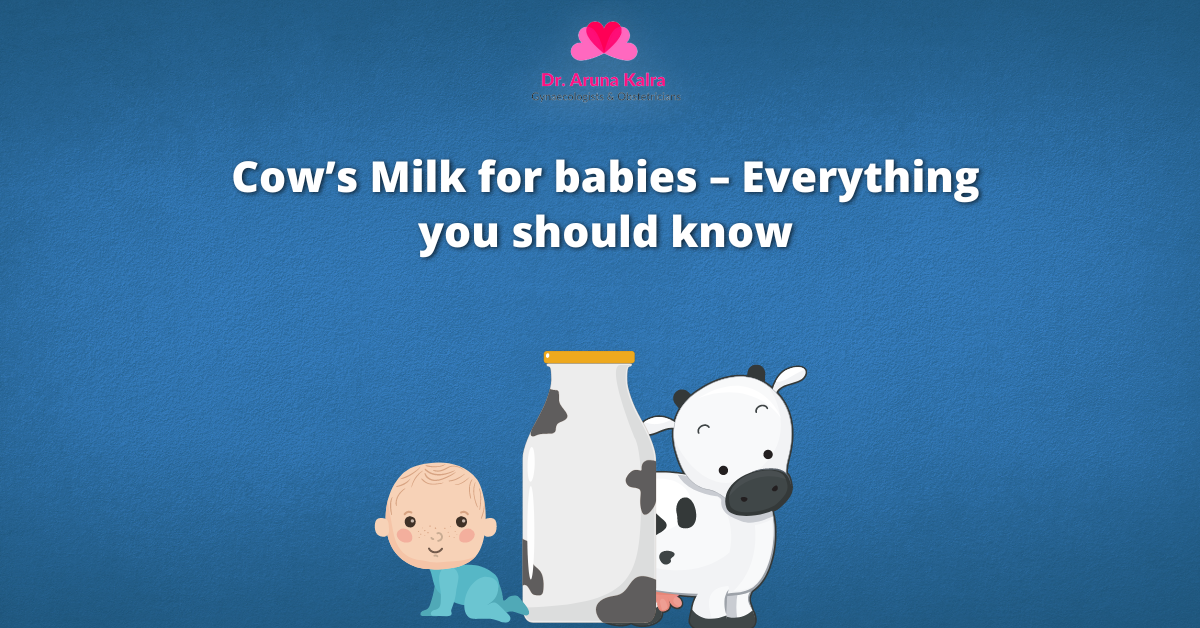
Cow’s Milk for babies – Everything you should know
The digestive system of a baby can take up to a year to fully develop. Cow’s milk is not as easily digested by babies as breast milk or formula. Cow’s milk is high in protein and minerals, which might put a strain on your baby’s developing kidneys. Cow’s milk is deficient in iron, vitamin C, and other nutrients that new borns require. Cow’s milk protein can irritate the lining of the digestive system, resulting in blood in the faeces, which can cause iron-deficiency anaemia in some newborns. Finally, cow’s milk does not provide the healthiest fats for developing children. However, cow’s milk should be provided to babies over the age of one as part of a well-balanced diet that includes cereals, fruits, vegetables, and meat.
When to introduce cow milk?
Cow’s milk can be given to babies when they turn one, but only in modest amounts. To begin, it can be blended with breast milk, formula milk, or boiling and cooled water to ensure a seamless transition for the infant. You might start by hiding it into other foods that your kid enjoys to see if he can digest it without any problems.
You can make a 1:3 mixture of cow’s milk and breast milk. This indicates that one part cow’s milk and three parts breast milk will make up the mixed milk. You can progressively increase the proportion of cow’s milk while decreasing the proportion of breast milk. Eventually, the toddler will only be given cow’s milk. It’s best if it’s given at least an hour before feeding time. This allows children to acquire the nourishment they need from milk without sacrificing their appetite for other foods.
How much Cow milk does a toddler need?
After a gradual introduction, a one-year-old can be given around 1-1.5 cups of milk daily. You might also serve a dairy version of this, such as yogurt or cheese.
Health benefits of Cow’s milk
Cow milk is beneficial to babies because it contains a significant amount of calcium, which is necessary for the development of strong bones, teeth, and muscular growth. It contains Vitamin D, which aids calcium absorption in the body.
Milk is also abundant in protein, which aids in the growth of your kid. It also includes carbs, which provide your child with the energy he or she needs throughout the day. Stronger bones, lower blood pressure, and a healthy heart are all benefits of a calcium-rich diet for children.


